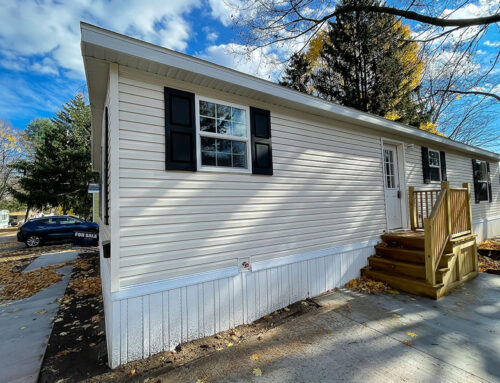It was a busy day at Zeke’s coffee shop and I could barely hear myself think as I was reviewing my real estate investment plan for the coming year. But, no matter how loud things seem to get there—or anywhere, for that matter—I can always zero in on nearby chit-chat that is about buying, renovating, and selling property. And, that’s how I met Phillip. He was sitting with his wife, Kimberly, discussing whether or not they should attend one of the several house auctions in PA to grow their real estate portfolio. So, being a seasoned investor, and a bit of a nosey one too, I introduced myself and offered to help them make their decision by going over the fine print of what it’s really like to bid on and buy property from an auction.
The Fine Print on Buying Distressed Homes from House Auctions in PA
The only real benefit of buying houses to renovate and resell from a property auction is the potential to realize substantial returns. And, on the surface, that’s a very good reason to try. Since most have been foreclosed on, homes sold at auctions tend to be in pretty bad shape. After all, homeowners who can’t afford their mortgage payments or keep up with their property taxes often have an equally hard time maintaining their houses. And, because Pennsylvania is a judicial foreclosure state, auction homes can get sold for below market value. At least in the beginning, the amount that’s owed on a property is usually the amount that the judge will set starting bids. So, if you can win a home for very little cash and renovate it within a reasonable budget, your chances of seeing a good return on your investment aren’t bad.
As you’ve probably guessed, however, buying foreclosure auction homes and scoring a decent ROI isn’t nearly that cut-and-dry. So, getting clear on what you can expect from an auction—and of the properties you might buy there—should be your top priority before ever placing a bid. That’s true even here in Pennsylvania where many of the rules and terms of sale for foreclosure auctions sometimes overlap. To get you started on your research, the details I shared with Phillip and Kimberly on three of our state’s largest foreclosure auctions are below. However, your search for finding Pennsylvania’s best real estate deals shouldn’t end there.
Allegheny County Sheriff’s Sale
Once a month, the Allegheny County Sheriff’s Sale auctions foreclosed homes to the highest bidder, whether they buy and sell houses as a business or intend to live at the property. Homes going up for sale are advertised in local papers, like the Post Gazette, and listed on the Sheriff’s website. You can find starting bids there, too. A deposit of 10% in the form of cash or a cash equivalent, like a money order, is required to bid. But, they will accept a check from your attorney as well. So, you need to know in advance the maximum you’re willing to pay on any given property. You’ll also need to be prepared to pay the balance by the end of the week if you win it.
The compressed timeline for closing on a home bought from this auction presents a few problems, however. First, you’re left with little time to work in a home inspection if you’re allowed to perform one, which is not guaranteed, or granted, by the Sheriff’s Office. That only increases your risk of buying a home in such disrepair that, after the rehab, your potential returns disappear. But, if you try to delay closing to buy a little more time, or decide to back out entirely to save yourself grief, you’ll forfeit your deposit and, possibly, the chance to bid again. So, you could actually lose much more than you gain by bidding on homes in Allegheny County, which is simply a risk no one should take.
Lehigh County Sheriff’s Sale
The Lehigh County Sheriff’s Sale is also conducted monthly on homes that have a variety of judgments against them. Information about these homes is available online, on-site at the property, and in the Lehigh Law Journal as well as similar publications. A 10% deposit is due if and when you win a bid, but so are all the costs—called the sheriff’s poundage—of bringing the home to auction and transferring its ownership to you. You’ll need to confirm the total fees for a property before you place a bid in order to bring the correct amount in the form of certified funds or a cashier’s check. But, that’s easy enough to do by going to the sheriff’s website. Then, if you win, Lehigh County gives you 30 days to close—a generous amount of time compared to some auctions.
Unfortunately, Lehigh County’s generosity will only take you so far. Not all of the homes sold at this auction come with clear titles. So, there’s a possibility you could owe much more than you paid for a property if liens and other encumbrances are attached to it. But, there’s no chance of getting your money back when you find out you’ve got a money pit since all homes are sold as-is. Even your deposit stays behind. Additionally, the sheriff allows those who might have reason to object to the sale a full month to come forward after you’ve closed. So, even if it turns out to be a deal you do want, it’s still possible to be dealt a bad hand—and no property.
Philadelphia Sheriff’s Sale
At the Philadelphia Sheriff’s Sale, bank and tax foreclosure auctions are split up with the former happening once a month and the latter happening four times a month and every quarter. Details about each property can be found in the usual places—online and in local papers—and often includes its current assessed value. That could, in theory, help to give you an idea of how much you should pay. Of course, the standard 10% of your purchase price is due as a deposit, to be paid by certified check or money order, if you’re lucky enough to win. And, as with the Lehigh County Sheriff’s Sale, you have a full month to close.
It’s entirely possible, however, that you won’t feel so lucky if you do win a property from this auction. Without a home inspection, for example, there’s just no way of knowing if what you pay for the property will leave room for the rehab and decent returns—no matter what the assessed value is stated to be. And, gaining access to the house to find out for certain won’t be up to you or the sheriff’s office—it’ll be up to the previous owner, should you be able to find them. Though, it’s always possible they might still reside in the home. That’s not necessarily good news, unfortunately. Homeowners still living at a property cannot be evicted for at least six months—the amount of time they’re given to redeem the house and take it from you if it was a tax foreclosure sale. And, if they’re able to repay what they owe and stay in the home, it won’t matter that you’re knee-deep in planning repairs or an extensive renovation on the property’s kitchen. You won’t be given the right to a refund for any of the work you’ve done. Instead, you’ll be out of a property, out of money, and out of luck.
In the end, the process of finding fixer-upper homes, closing on them without a hitch, and realizing solid returns from a house auction is more complicated, and less profitable, than you might at first think. Even when sales go smoothly, the shape the properties are in tends to be rough—and, all-too-often, too expensive to rehab—which makes counting on them for yielding good returns a shaky proposition at best. For a better chance of realizing potentially solid returns, don’t bother searching for good deals at any of Pennsylvania’s property auctions. Look for a way to get distressed homeowners to come to you before they lose their homes.
How to Get Distressed Homeowners to Come to You Instead
Thankfully, years ago, an older, more seasoned investor stuck his nose into my business when I was talking up my intention to build my portfolio with auction properties here in Allegheny County. Had he not intervened, I might have won a property or two—and, lost my shirt on a money pit in the process. It’s also possible I wouldn’t be the successful investor I am today, since, in an effort to find the kind of marketing tools and resources that bring distressed homeowners to me, I became an independently owned and operated HomeVestors® franchisee.
Making that point is how I rounded out my discussion with Kimberly and Phillip. Now that they’ve also joined the team that gives them access to the nationally-known and trusted “We Buy Ugly Houses®” ad campaign, and are working hard to convert the qualified Keystone State leads that come their way and help the homeowners out of their “ugly situations,” I suspect that someday they’ll be to able help other investors make better decisions, too.
To learn how you can get access to the “We Buy Ugly Houses®” ad campaign in your area, contact HomeVestors® about getting more of your own qualified distressed homeowner leads today.
Each franchise office is independently owned and operated.
Contact
"*" indicates required fields





